10 Mob Stories Just as Great as The Godfather

Explore ten gripping mob tales that rival “The Godfather” in drama, depth, and storytelling. From the gritty streets of New York to the vibrant chaos of Miami, these stories delve into the complex world of organized crime, offering unique perspectives and unforgettable characters.
1. Goodfellas (1990) — Martin Scorsese
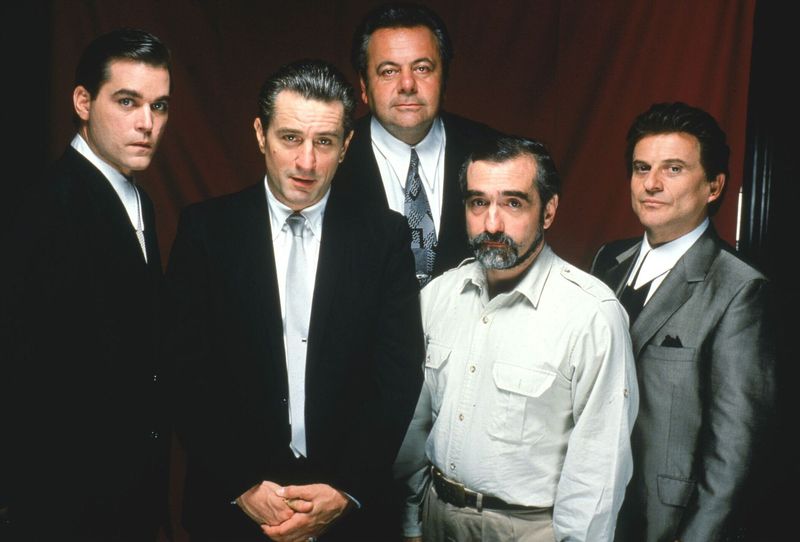
“As far back as I can remember, I always wanted to be a gangster.” This iconic line sets the stage for Scorsese’s raw and kinetic masterpiece, “Goodfellas.” Unlike the operatic tragedy of “The Godfather,” “Goodfellas” offers electric chaos, taking viewers on a whirlwind tour of mob life.
The film captures the intoxicating thrill and inevitable decay within organized crime. With a dynamic cast including Ray Liotta, Robert De Niro, and Joe Pesci, it crafts a vivid portrait of ambition, loyalty, and betrayal.
The narrative style, breaking the fourth wall, ensures an engaging and immersive experience. The soundtrack, filled with classic hits, perfectly complements the energetic storytelling.
2. The Irishman (2019) — Martin Scorsese
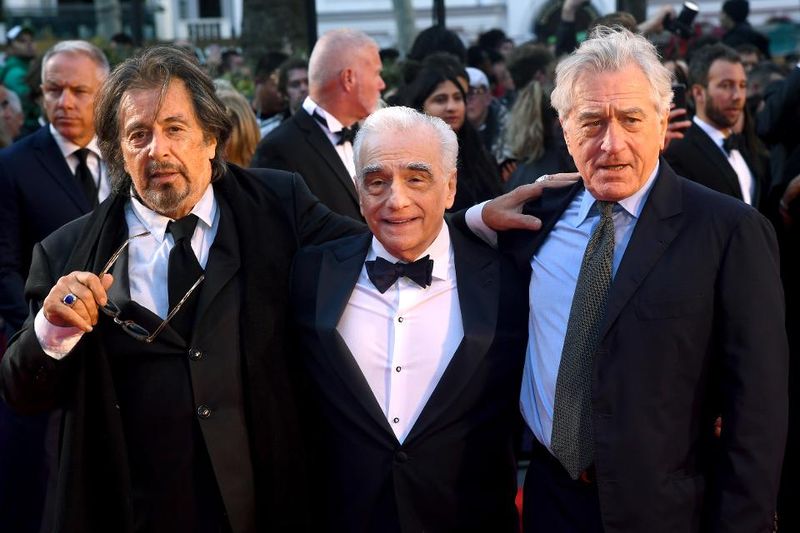
With a reflective tone, “The Irishman” offers a poignant look at mob loyalty and regret. Scorsese crafts an elegiac tale where aging and betrayal shadow the characters’ lives.
Robert De Niro, Al Pacino, and Joe Pesci deliver powerhouse performances. Their chemistry brings depth to the narrative, exploring themes of time and loss.
The film’s subdued pace contrasts with Scorsese’s usual frenetic style, allowing the emotional weight to resonate. The use of digital de-aging technology uniquely enhances the story, traversing decades with subtle visual cues.
3. Casino (1995) — Martin Scorsese
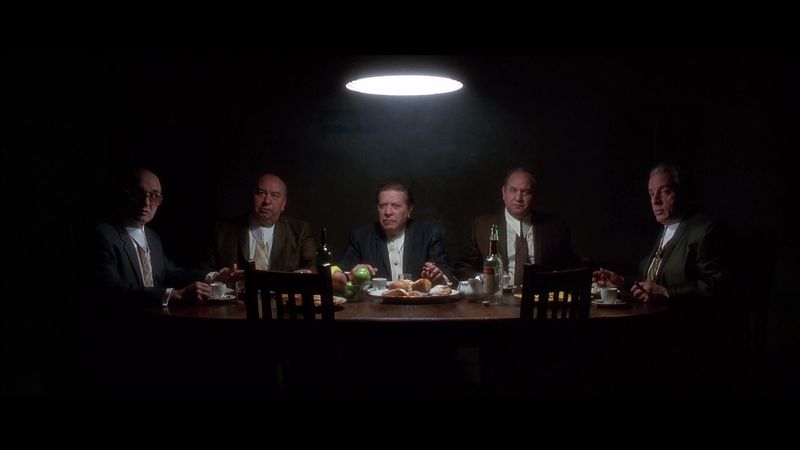
In “Casino,” Scorsese dives into the glittering, violent world of mob-controlled Las Vegas. The film is sharp, stylish, and relentless, exploring the allure and corruption of casino life.
De Niro, Sharon Stone, and Joe Pesci bring complex characters to life, with Stone’s performance earning critical acclaim. Their intertwined fates unravel amidst betrayal and greed.
Visual storytelling is a highlight, with vibrant cinematography capturing the era’s glamour. The narrative’s intricate details depict the ruthless mechanics of power and control, leaving a lasting impression.
4. Once Upon a Time in America (1984) — Sergio Leone
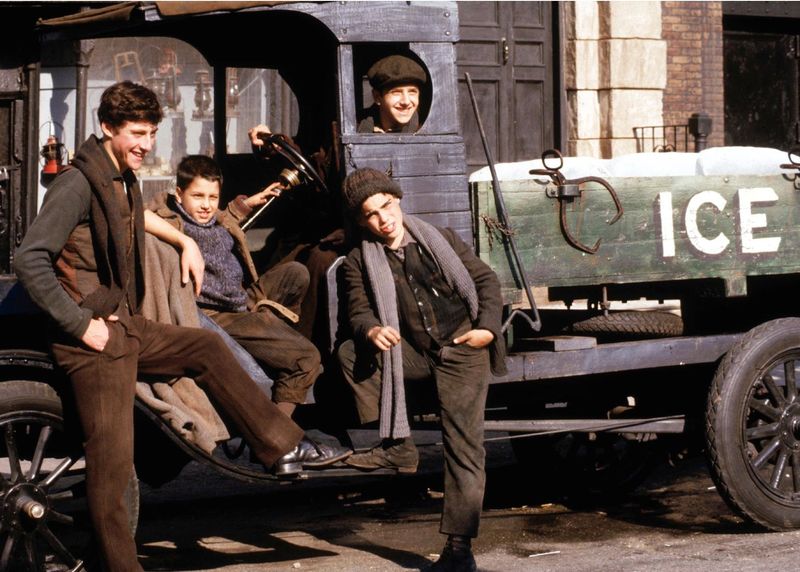
Epic and melancholic, “Once Upon a Time in America” delves into childhood friends turned gangsters. Leone weaves a sprawling narrative, rich with poetic undertones and emotional depth.
Robert De Niro and James Woods anchor this tale of friendship, memory, and loss. Their performances capture the passage of time, revealing how dreams and ambitions fracture.
The film’s non-linear structure adds a haunting layer, inviting viewers to piece together its intricate story. Leone’s meticulous direction ensures each frame is a work of art, reflecting a bygone era.
5. The Sopranos (1999–2007) — David Chase (TV Series)
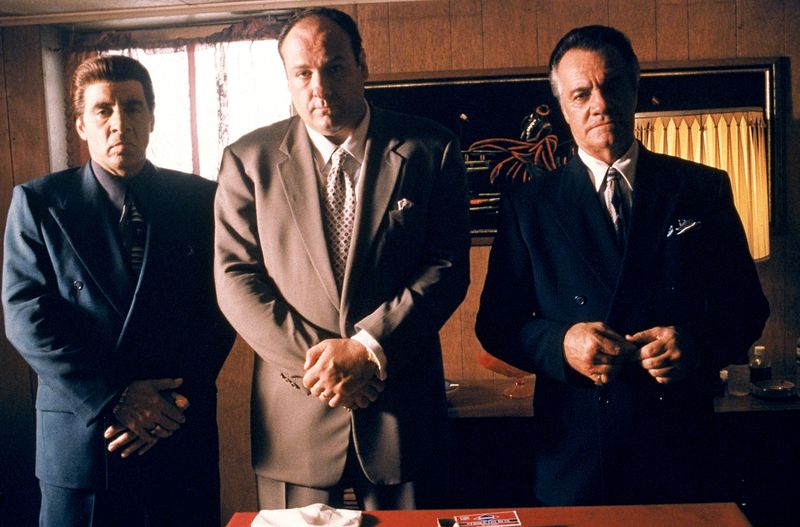
Though a TV series, “The Sopranos” redefined mob storytelling with its psychological depth and complex characters. Tony Soprano, portrayed by James Gandolfini, becomes a cultural icon.
The show blends family drama with criminal enterprise, exploring themes of identity and mental health. Its innovative storytelling captured audiences, setting a new standard for television.
Characters are richly developed, with layered narratives showcasing their moral complexities. The series’ influence endures, reflecting a modern Godfather in its scope and ambition.
6. Donnie Brasco (1997) — Mike Newell
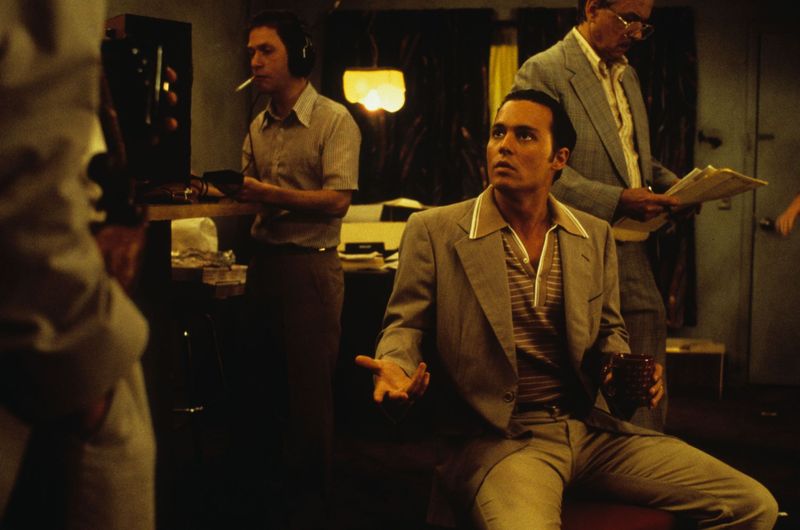
“Donnie Brasco,” based on true events, reveals the gritty reality of undercover life in the mob. Al Pacino’s portrayal of a fading gangster offers poignancy and depth.
Johnny Depp plays FBI agent Joseph D. Pistone, alias Donnie Brasco, infiltrating the mafia. Their relationship unfolds with tension and humanity, highlighting themes of trust and betrayal.
The film’s authenticity draws viewers into a world where loyalty comes at a high price. Its compelling narrative and stellar performances make it a standout in mob cinema history.
7. A Bronx Tale (1993) — Robert De Niro
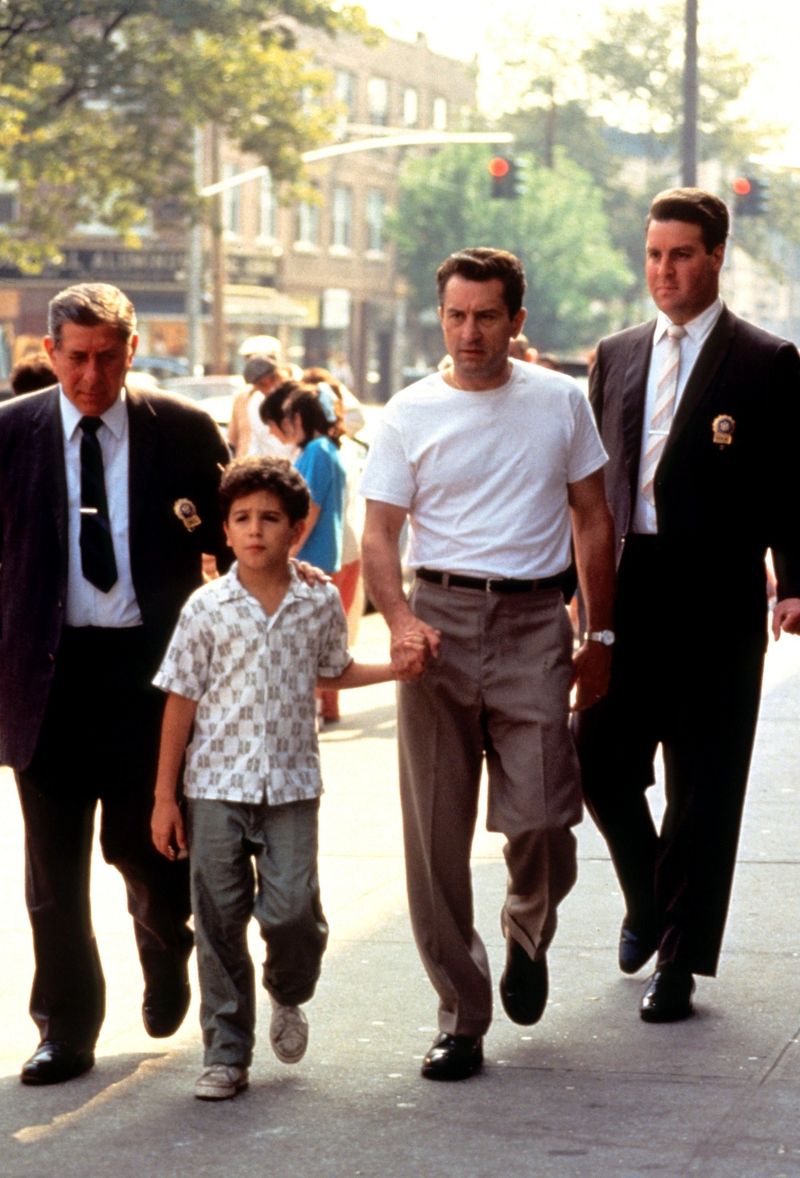
Heartfelt and insightful, “A Bronx Tale” merges coming-of-age themes with mob life. De Niro directs and stars, crafting a story rich in moral dilemmas and mentorship.
The film follows young Calogero as he navigates the Bronx under the influence of mob boss Sonny. Their interactions explore choices, identity, and community.
De Niro’s directorial debut captures the era’s essence, blending nostalgia with gritty realism. The story’s emotional core resonates, echoing “The Godfather’s” exploration of family and values.
8. Scarface (1983) — Brian De Palma
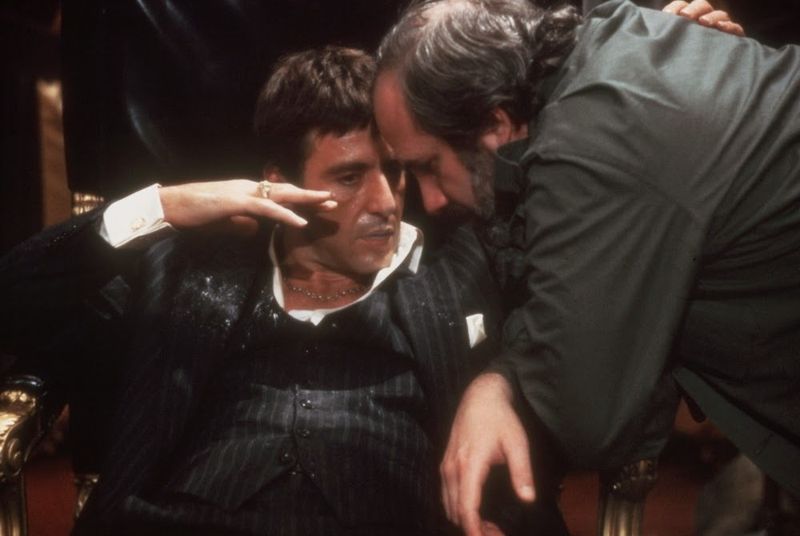
Brian De Palma’s “Scarface” is a louder, flashier mob tale, with Al Pacino’s Tony Montana embodying ambition and excess. This iconic film mirrors Michael Corleone’s journey, set in cocaine-dusted Miami.
Montana’s rise and fall are marked by violence and betrayal, painting a portrait of unchecked power. De Palma’s direction highlights the era’s opulence and danger.
The film’s memorable lines and intense scenes have cemented its place in pop culture. Its exploration of the American Dream’s dark side resonates, offering a stark contrast to “The Godfather’s” elegance.
9. The Untouchables (1987) — Brian De Palma
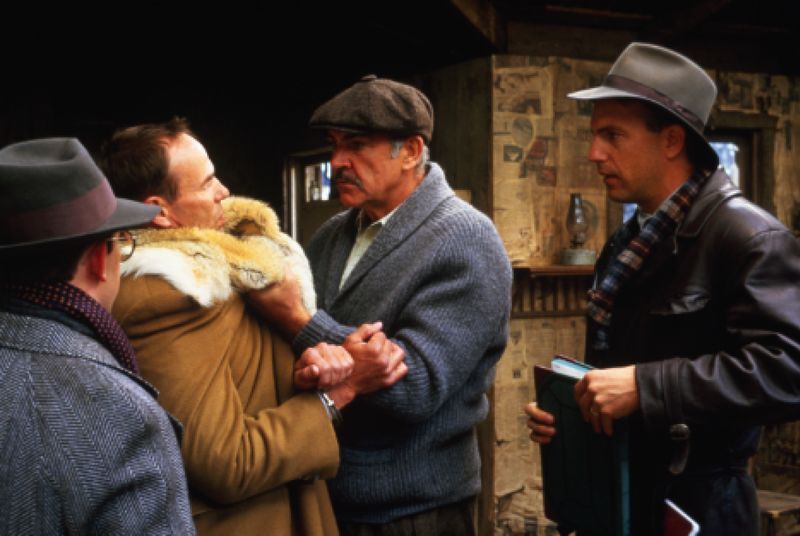
In “The Untouchables,” style meets substance as lawmen face off against gangsters. De Palma crafts a slick, cinematic showdown with memorable performances.
Kevin Costner, Sean Connery, and Robert De Niro bring charisma and intensity. Connery’s Oscar-winning role adds depth and gravitas to the narrative.
The film’s stylized approach, with dramatic set pieces and a rousing score, elevates the classic cops-and-robbers tale. It remains a compelling depiction of justice against organized crime.
10. Gomorrah (2008) — Matteo Garrone
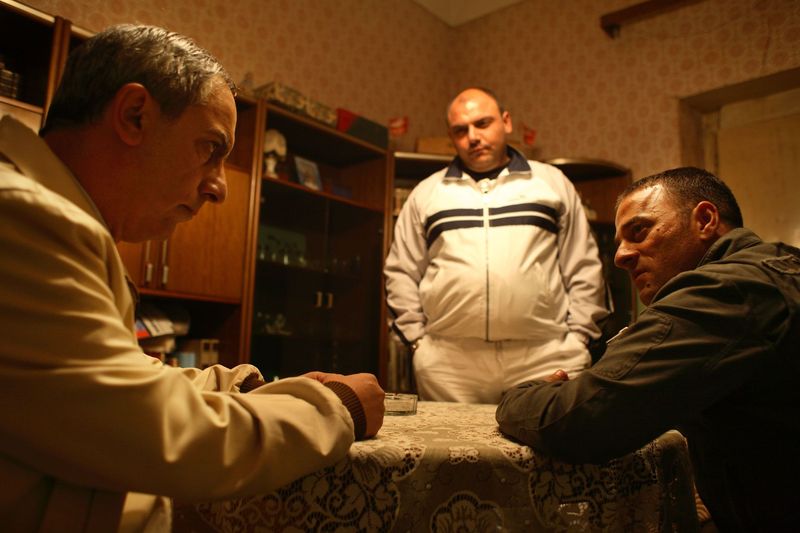
“Gomorrah” offers a brutally realistic portrayal of the Neapolitan mafia, stripping away any glamour. Garrone’s film exposes the soulless machinery of modern organized crime.
The intertwining stories reveal the pervasive impact of the Camorra on individuals and communities. Its documentary-like style enhances authenticity, making it a stark contrast to cinematic fantasies.
The film’s raw, unflinching approach brings a new perspective to mob narratives. It underscores crime’s dehumanizing effects, offering an unvarnished look at its devastating consequences.

Comments
Loading…